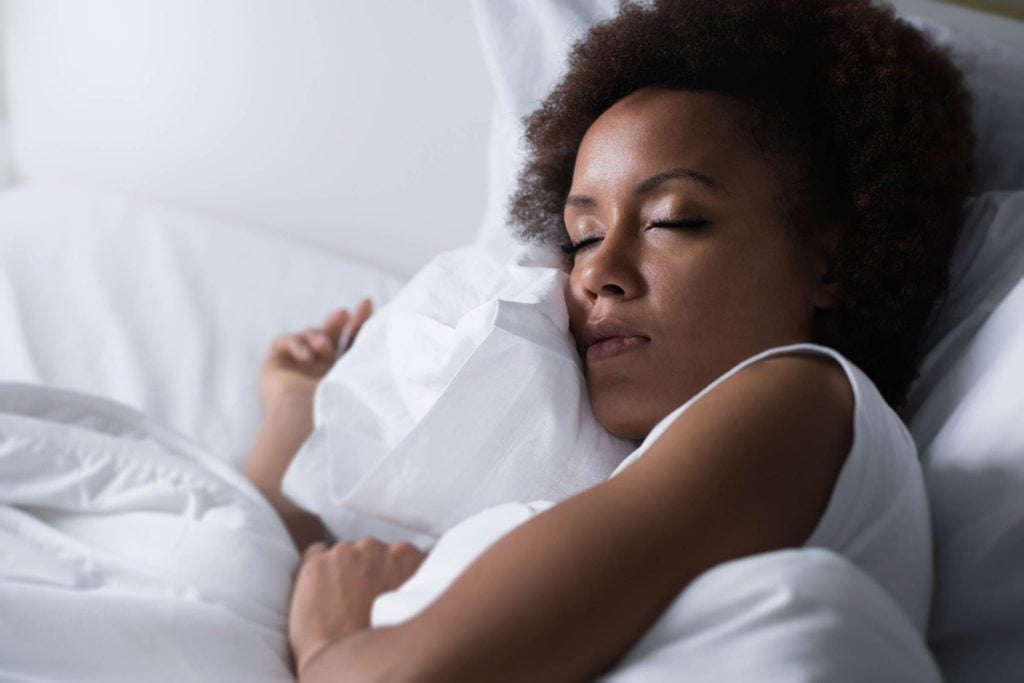Sleeping in This One Position Could Help Prevent Alzheimer’s Disease, According to Science
Updated: Nov. 08, 2017
All it could take is a simple swap!

Are you a side snoozer? A stomach slumberer? Or do you go to bed on your back? Your sleep position could predict a lot more than just your personality (although here’s what it says about yours!) While plenty of research has documented the negative side effects of not getting enough sleep, it might not just be the quality or duration of your snooze that affects your risk for Alzheimer’s. Sleeping on your side, rather than on your back or stomach, may be the best position for a healthy brain, according to a recent study.
To evaluate the effects of sleep position on our brain health, the study looked at the brain performance of mice when they slept on their backs, stomachs, or sides. Researchers used MRI scans to monitor their brain’s glymphatic pathway—or the system that removes harmful buildup and chemicals from the brain—and how effectively it performed in various sleep positions.
Their findings revealed that the brains of mice who slept on their side removed waste the most efficiently. Brain waste can often contain beta-amyloid proteins, which make up the plaque commonly found in Alzheimer’s patients. By clearing away these proteins, researchers believe that the brain protects itself from developing certain neurological diseases. Thus, they concluded, our preferred sleep position could play a role in our risk of Alzheimer’s disease down the road. No word yet on whether the right or left side is better, however.
Previous studies have suggested that getting too much sleep and waking up in the middle of the night could increase your risk of developing Alzheimer’s, too. Now, the scientists hope that future research will focus on the effects of sleep position and Alzheimer’s disease in humans.
If you tend to sleep on your back or stomach, changing your position can optimize your brain’s waste removal process as you snooze. To do so, sleep experts recommend investing in a good side-sleeping pillow. “Pillows are serious sleep products that have a big impact on both your sleep and your overall health,” Michael Breus, author of The Sleep Doctor’s Diet Plan, told Prevention. The pillow should keep your neck aligned with the rest of your body while you sleep.
Swapping up your sleep position isn’t the only change you can make. These everyday habits can reduce your risk of Alzheimer’s disease, too.
[Source: Prevention]